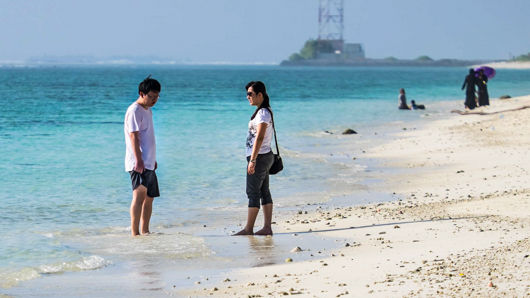Brand Maldives: the paradox
If fans of brand Nike are concerned with the working conditions at factories in Bangladesh, rich tourists who travel to the Maldives must surely ask themselves how ethical is it is for them to support an industry that siphons off the riches earned by exploiting the natural beauty of these of islands with just a minute percentage of it trickling down to the average Maldivian, writes Hassan Saeed.

09 Dec 2015, 09:00
By Hassan Saeed
Brand Maldives is up there with the best. MBA students at some of the finest business schools study and analyse brand Maldives along with the best – the Apples, Samsungs, Nikes and the Four Seasons of the world.
The unique geo-physical features of the Maldives have given the brand a competitive edge. Islands in the Maldives are small and beautiful, picture perfect! Over the past 40 years, tourism development has seen some of the finest hospitality brands set up properties on these islands. These properties offer the finest in luxury.
The latest statistics from the Ministry of Tourism reveal that only one out of every five guests who come to the Maldives visits a local island. While tourist resorts and the villas tourists stay on these island provide all the mod cons a guest would require, life in the local villages is very far removed from these picturesque settings. The villagers or the locals on some of the outlying islands still lack clean water and proper sewerage systems.
Become a member
Get full access to our archive and personalise your experience.
Already a member?
Discussion
No comments yet. Be the first to share your thoughts!
No comments yet. Be the first to join the conversation!
Join the Conversation
Sign in to share your thoughts under an alias and take part in the discussion. Independent journalism thrives on open, respectful debate — your voice matters.




